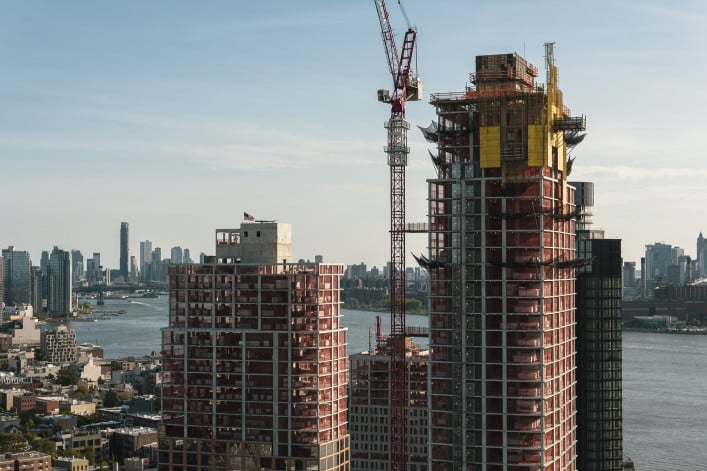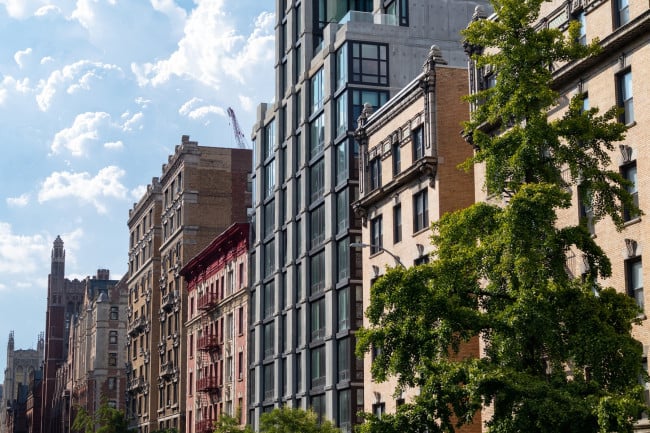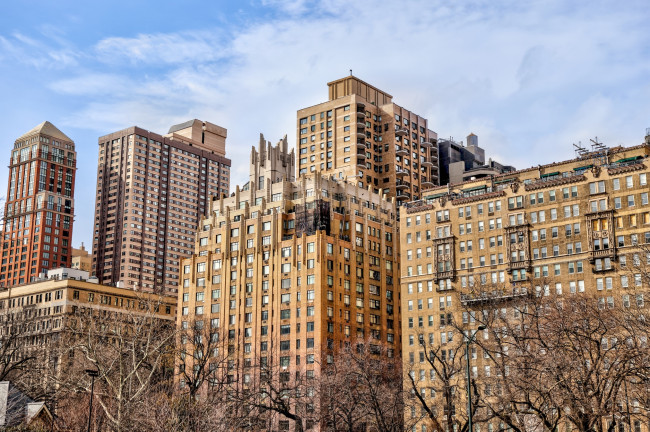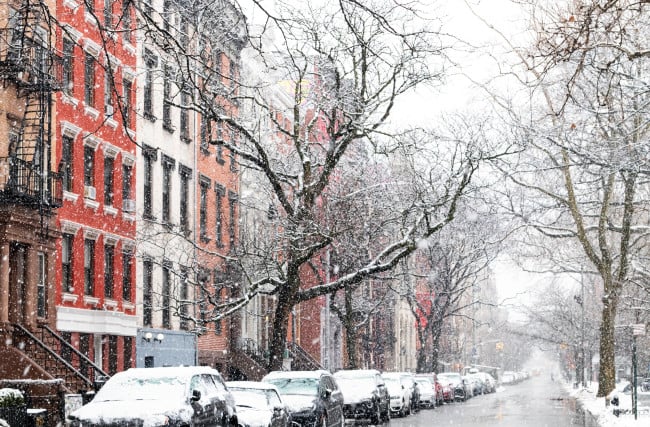Nikki’s Notes: How can we avoid shoddy construction when buying a brand-new condo?
- Watch for common problems like faulty plumbing and leaky windows—they may not be apparent until you move in
- Research the developer's reputation online and tour other developments to gauge their construction quality

You typically won't be able to see a new construction condo until after you've closed, so it's up to you—and a qualified broker and real estate attorney—to do the necessary due diligence.
iStock
We want to buy a new condo but are nervous about shoddy construction. What's your advice for buying in a new development?
Buying a brand-new condo is a great way to get up-to-date features and amenities, but you are right to be concerned about construction quality. Defects and other issues do happen—and they may not be discovered until after you've moved in.
Pre-construction units can also be better deals. "The earlier you get in on the development process, the lower the price will be, but you must be okay with accepting some of the risks," said Nikki Beauchamp, a broker at Sotheby's International Realty with over two decades of experience representing buyers and sellers in New York City.
Unlike an existing unit where you can see—and knock on—the walls, buying new usually happens after seeing a sales gallery with some renderings and sample finishes. Smaller projects may only offer hard-hat tours of the in-progress job site.
Either way, here are Beauchamp's recommendations for avoiding potential pitfalls when buying in a new development.
Know the common problems
Shoddy construction can involve too-thin walls and subpar flooring, both of which don't block sound from your neighbors.
"These are big concerns when living in a vertical environment," Beauchamp said.
Other frequent complaints include leaky windows, faulty plumbing, problems with the electrical work and HVAC systems, and improper drainage for private outdoor areas.
The Department of Buildings generally has safeguards to detect major issues, but some things fall outside its purview. And some problems may also not appear until after the building is completed.
Work with a qualified team
Given how much can go wrong, Beauchamp emphasizes the importance of working with a broker and real estate attorney experienced with buying in new developments, ideally with the same building.
This way, you can better spot red flags from the get-go.
For starters, your attorney should review the condo's offering plan, which sets forth the names of the developer, architect, and contractors. It also provides all the structural and design details, down to the brands of finishes, fixtures, and appliances. Based on the number and nature of concerns you may have, it might be worth having an independent architect or contractor to conduct their own review
Beauchamp said she will also tap her professional network to glean intel from other brokers who have shown buyers the same project.
"I also cannot understate the value of having conversations with the on-site team so I can present my client's questions and concerns and garner the right responses and information," she said, adding that the listing agent might be aware of other upcoming projects that would be a better fit.
Research the developer
The reputation of the developer and affiliated team can speak volumes, and your broker and attorney may already be familiar with the key players. If not, they can uncover all kinds of details (including any lawsuits) via online investigations.
Most condos in Manhattan are by established developers with a portfolio of completed projects, which Beauchamp will show buyers to gauge the quality of a new one. They will usually have sales galleries, too, where you can see a building model and renderings and touch and feel finishes and fixtures.
Beauchamp said plenty of smaller condo projects in other boroughs, however, are the developer's first—and they lack a showroom. Such was the case for a recent client, who bought in a Brooklyn boutique building that only offered hard hat tours.
"The walls weren't even up, but the project team was very transparent about what they were doing and listened to our concerns, and now my client is happy in this wonderful building," she said.
Be on the lookout for defects
Beauchamp stresses the need to be highly attuned to problem-prone areas of your new place from the point of closing and continually after moving in. Many issues aren't visible immediately, and there's a six-year window for you to sue the sponsor.
Take careful records of where and when an issue occurs, and consider hiring a third-party pro to confirm your concern and prevent the problem from escalating.
A sound engineer may be beneficial if you suspect lousy (or entirely lacking) soundproofing, or you can use a (free) decibel-measuring app on your smartphone to back up your claim.
Network with neighbors
Sharing information will definitely help spot any issues—and get them resolved.
"One of my clients started making friends with all the neighbors in their small condo right away and created a chat group so the minute one of them had a problem, the others could be on high alert," Beauchamp said.
This idea can also work in a larger building. For instance, another client discovered that her issue was occurring in other apartments in her same line.
Go with your gut
Buying a place site unseen—make that site unbuilt!—requires a leap of faith and is best approached on a case-by-case basis and with a willingness to ask questions.
"If it doesn't feel right, there may be something behind that," Beauchamp said, noting that you could focus only on completed developments or updated resale units instead.
On the flip side, buying early enough in the pre-construction process opens the door to customization. "I worked with a buyer who recently succeeded in adding a steam oven to the kitchen, which for him was a game-changer," she added.
Nikki Beauchamp is a multilingual real estate advisor at Sotheby’s International Realty with over two decades of experience representing buyers and sellers in New York City and globally. Known for her data-driven approach and market expertise, she provides clients with valuable insights to make informed decisions. Beauchamp is an active member of the Real Estate Board of New York, currently serving as co-chair of the New York Residential Specialist executive committee. To submit a question for this column click here. To reach Nikki call (212) 606-4152 or contact her via her website.
You Might Also Like


























